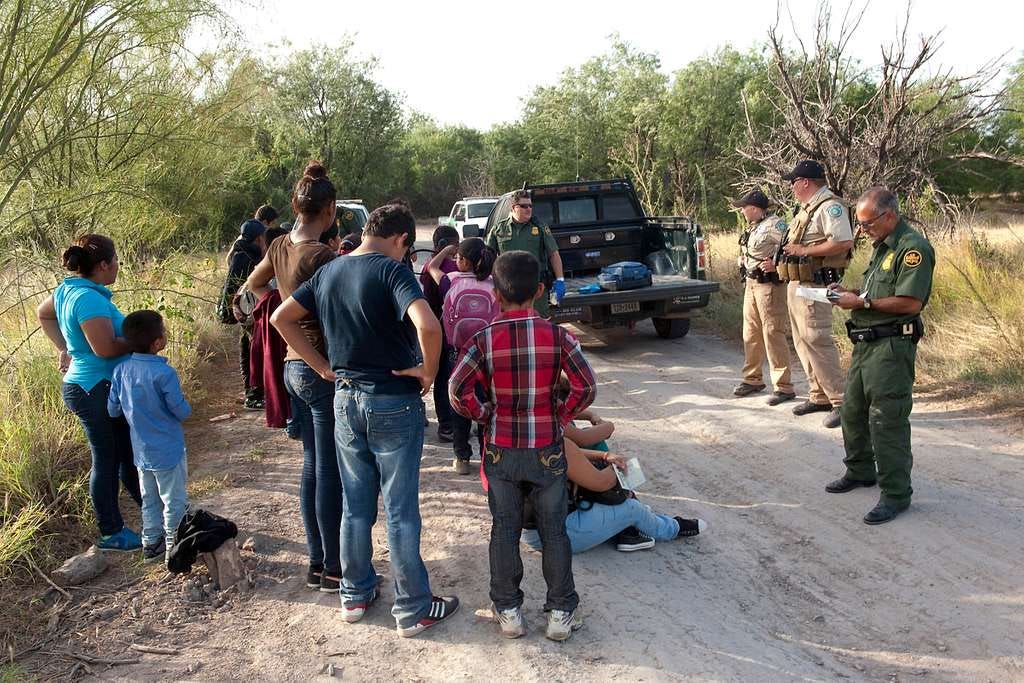U.S. watchdog finds significant failures in protecting unaccompanied migrant children
The Border Center for Journalists and Bloggers (BCJB) shares a summary of the main news on the border on February 16, 2024.
U.S. watchdog finds significant failures in protecting migrant children and vetting their sponsors.

An independent government watchdog reported severe lapses by the Department of Health and Human Services (HHS) in safeguarding unaccompanied migrant children arriving in the U.S., according to the New York Times. The report criticized HHS for handing children to adult sponsors without proper vetting and for inadequate safety checks post-release. This oversight has led to children being exploited in dangerous jobs, violating child labor laws. The inspector general highlighted the urgency of these gaps, noting children's vulnerability. Despite the Biden administration's efforts to expedite shelter exits amid increasing arrivals, over 85,000 children were unreachable for follow-up. Some were placed in precarious situations without mandatory safety checks, while others, like 13-year-old Wander Nimajuan, were forced into labor instead of attending school. HHS has since claimed improvements, including better policies and coordination with the Department of Labor, focusing on child welfare while reducing time spent in shelters.
Judge skeptical of Texas law allowing migrant arrests, warns of the U.S. becoming a confederation.
A federal judge, David Ezra, expressed serious concerns over a Texas law that would empower police to arrest migrants for illegal entry, potentially turning the U.S. into a patchwork of individual state immigration laws, the Associated Press reported. This law, signed by Governor Greg Abbott, is seen as a significant state attempt to control immigration, reminiscent of Arizona's controversial 2010 legislation. During a hearing with the U.S. Justice Department, Judge Ezra, a Ronald Reagan appointee, questioned the law's implications, particularly its impact on non-criminal migrants and its interference with federal processes. He highlighted the potential for civil rights violations and racial profiling. The law would allow Texas officers to arrest suspected illegal entrants, with penalties ranging from misdemeanor charges to possible felony charges for repeat offenses. Ezra's skepticism underscores the tension between Texas and the Biden administration over border control and immigration enforcement methods.
Mexico sues U.S. gun-makers for $10 billion, alleging facilitation of cross-border trafficking.
The conversation.- The Mexican government has launched a groundbreaking lawsuit against leading U.S. gun manufacturers, seeking $10 billion in damages for their alleged role in fueling violent crime through cross-border gun trafficking. This legal challenge, made possible by a Boston federal appeals court's decision, contests the gun industry's immunity under the 2005 Protection of Lawful Commerce in Arms Act, which has historically shielded manufacturers from civil liability arising from the criminal misuse of firearms. Mexico accuses the gun-makers of intentionally designing, marketing, and distributing firearms to appeal to criminal organizations, thereby aiding and abetting illegal weapon sales. The lawsuit claims these actions are not mere side effects but central to the industry's business model. If successful, Mexico's case could set a precedent for future litigation against the gun industry, potentially transforming its operations similarly to the recent shifts in the pharmaceutical industry due to opioid litigation and imposing significant financial liabilities on these manufacturers.
Mexican bishops negotiate with cartels for peace; talks fail over territorial disputes, says bishop.
Four Roman Catholic bishops entered negotiations with Mexican drug cartel leaders, aiming to forge a peace accord in the violence-stricken country, according to El Universal newspaper. This effort, disclosed by the Bishop of Chilpancingo-Chilapa, José de Jesús González Hernández, underscores the challenging circumstances under President Andrés Manuel López Obrador's administration, which has taken a non-confrontational stance toward the cartels. This policy has pressured communities to seek agreements with these criminal organizations. Despite the president approving the church's mediation efforts, the recent discussions did not yield a successful outcome. The cartel representatives sought a truce but imposed conditions unacceptable to other parties involved. This impasse highlights the ongoing struggle for control over territories in Guerrero, a state plagued by transport shutdowns and a surge in violence. The failure of these talks reflects the complex dynamics of negotiating peace in regions dominated by powerful drug trafficking operations.
Los Tlacos and Los Ardillos agreed to a truce in Guerrero, mediated by Father Filiberto Velázquez.
In Guerrero, Mexico, an important truce was achieved between the criminal groups Los Tlacos and Los Ardillos thanks to the mediation of Father Filiberto Velázquez, director of the "Minerva Bello" Human Rights Center, according to Milenio Newspaper. Without government intervention and through a telephone call, the negotiation has decreased tensions in the region, especially in Chilpancingo, the state capital. As a result of the agreement, both groups have agreed to respect each other's businesses, facilitating the resumption of public transportation services. This achievement represents a significant precedent for pacification, with the hope that other groups, including the Familia Michoacana, will follow this example. The successful mediation between Los Tlacos and Los Ardillos stands apart from other, less fruitful peace efforts, demonstrating that dialogue can be a viable path to resolving conflicts between rival groups in areas affected by organized crime violence.




